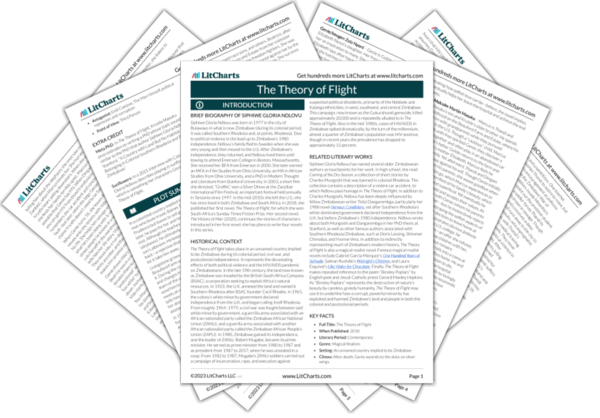If soldiers did rape Genie and infect her with HIV during the massacre, it explains several mysteries in the novel, e.g. why Dingani, who bears responsibility for the massacre, believes Genie’s HIV is his fault and why Genie dreamed of the massacre and of a boy playing soldier yelling that he’d killed her before she fell into a coma. This explanation for Genie’s HIV would also reinforce one of the novel’s ongoing themes, namely, that oppressive governments interfere with and harm their citizens in personal, obtrusive, and often sexually violent ways. Additionally, it would emphasize that the HIV/AIDS epidemic in Africa is a historical phenomenon affected by colonial and postcolonial politics, as well as a public health issue.
